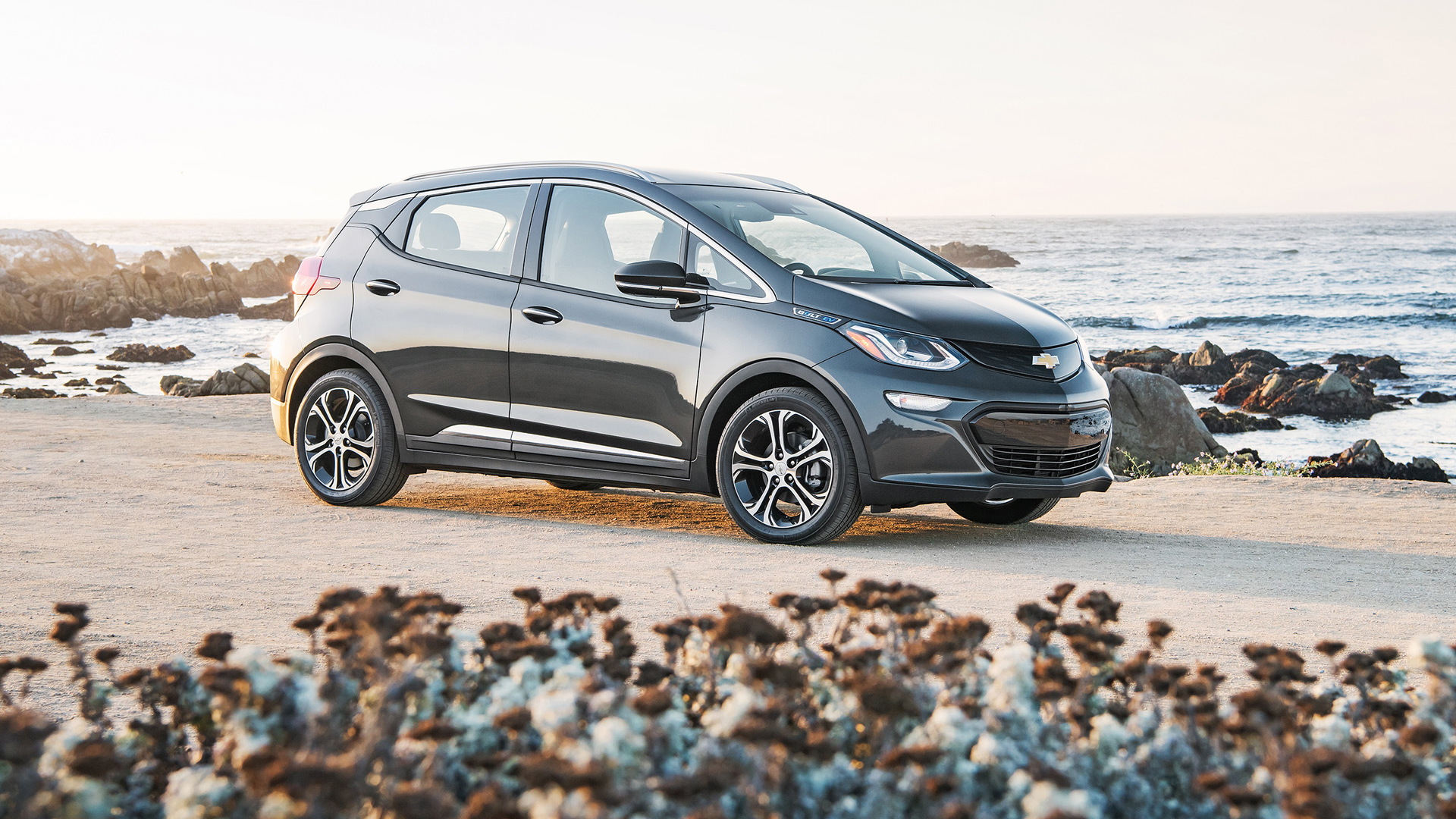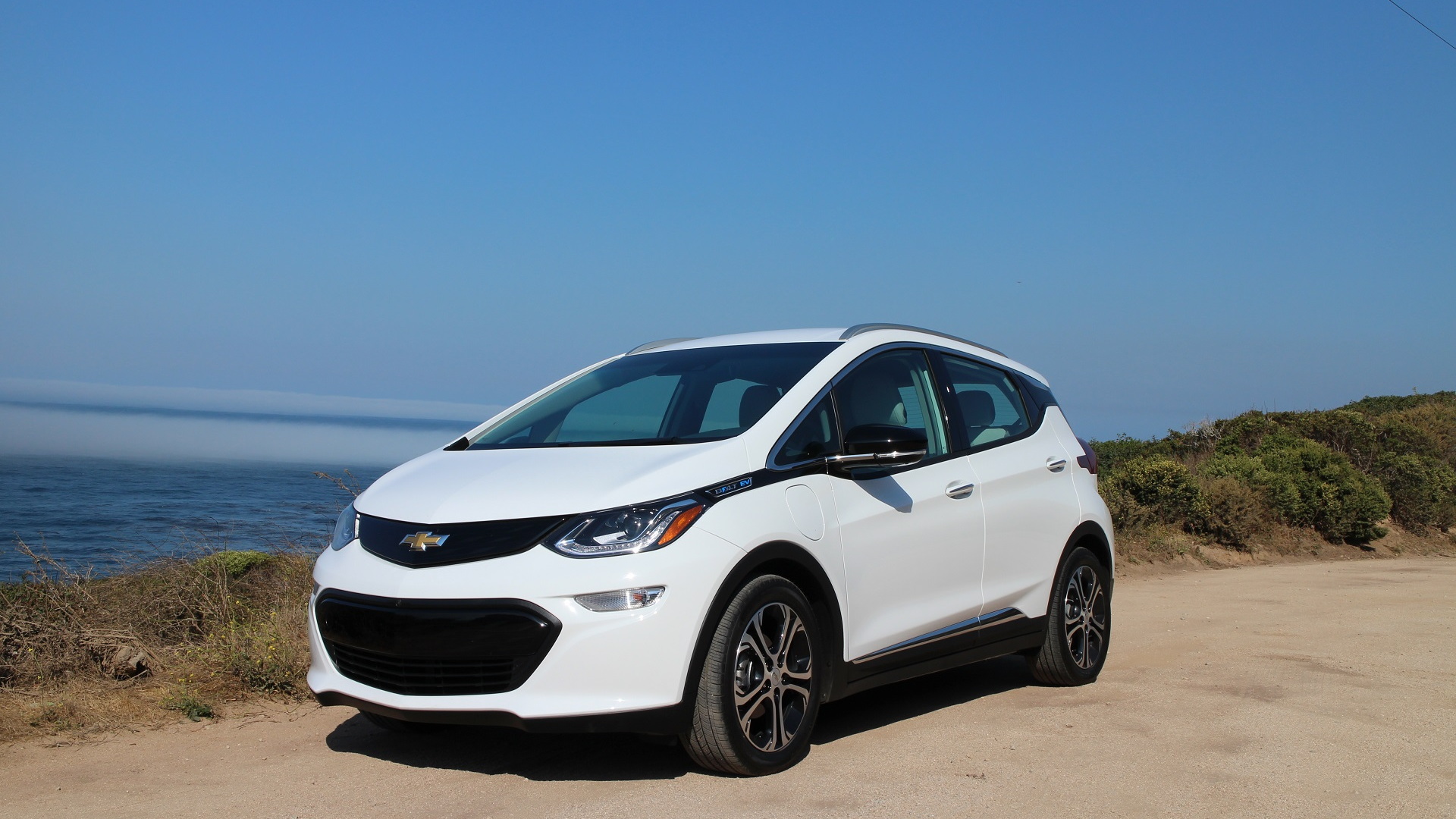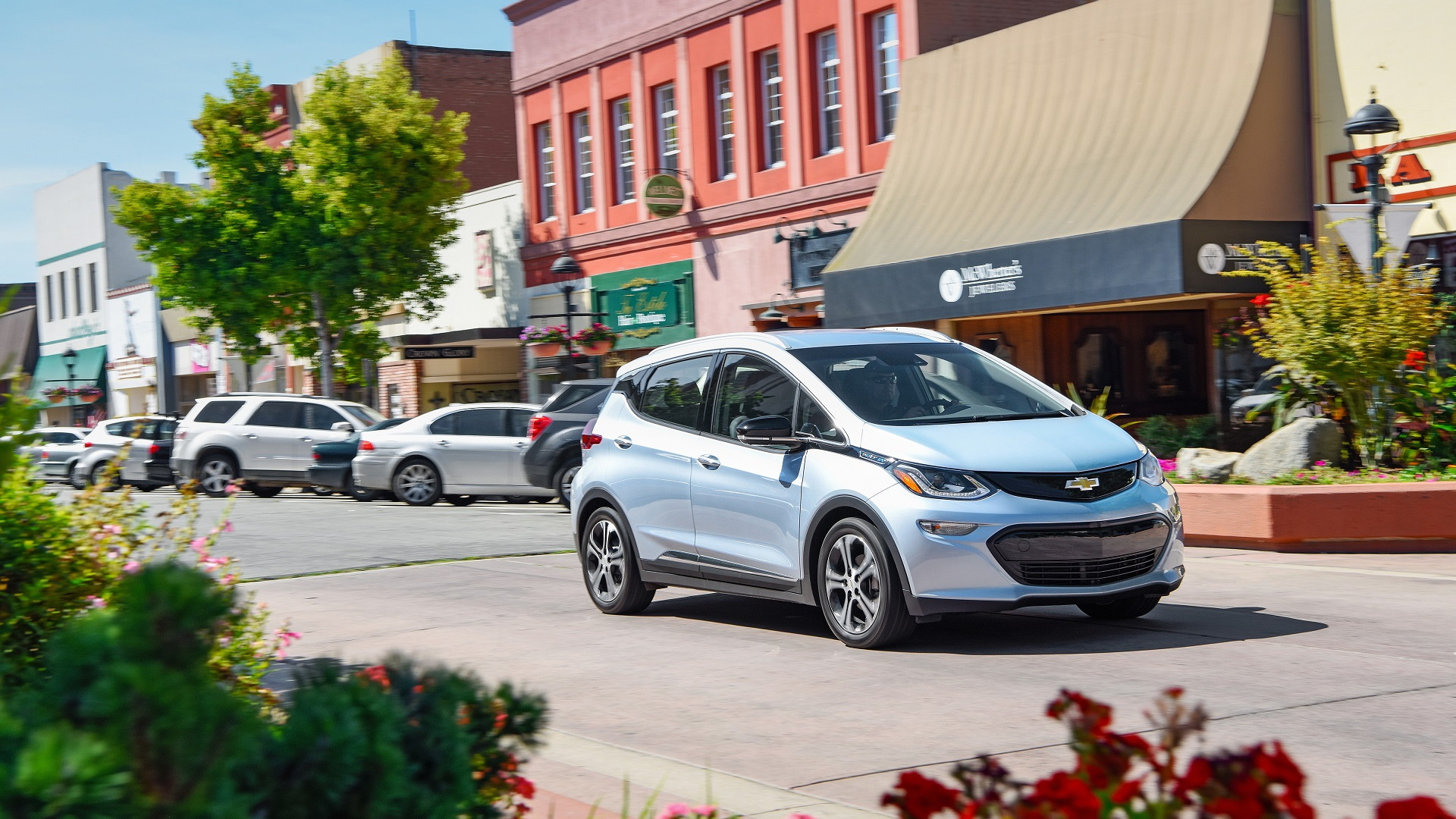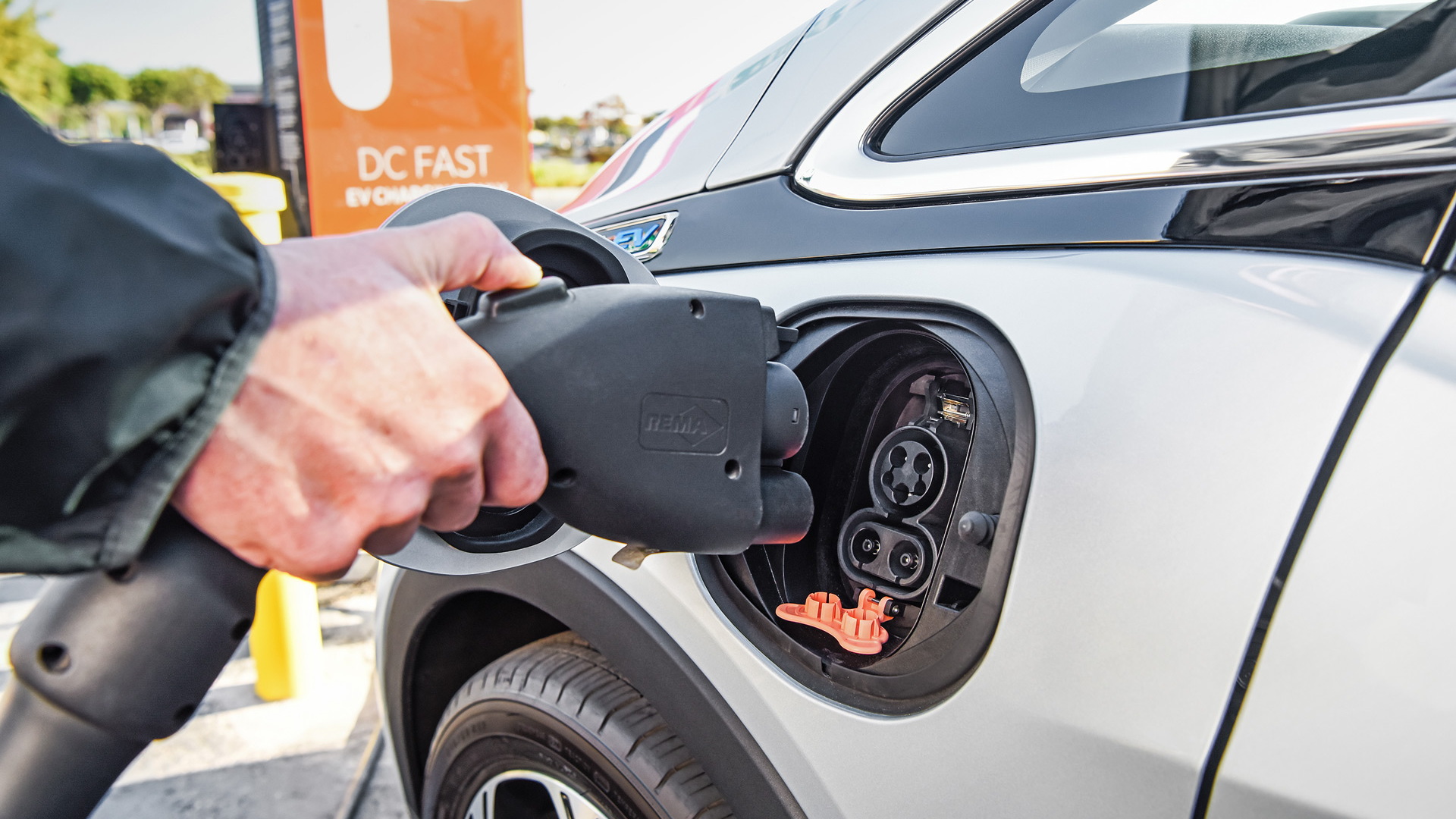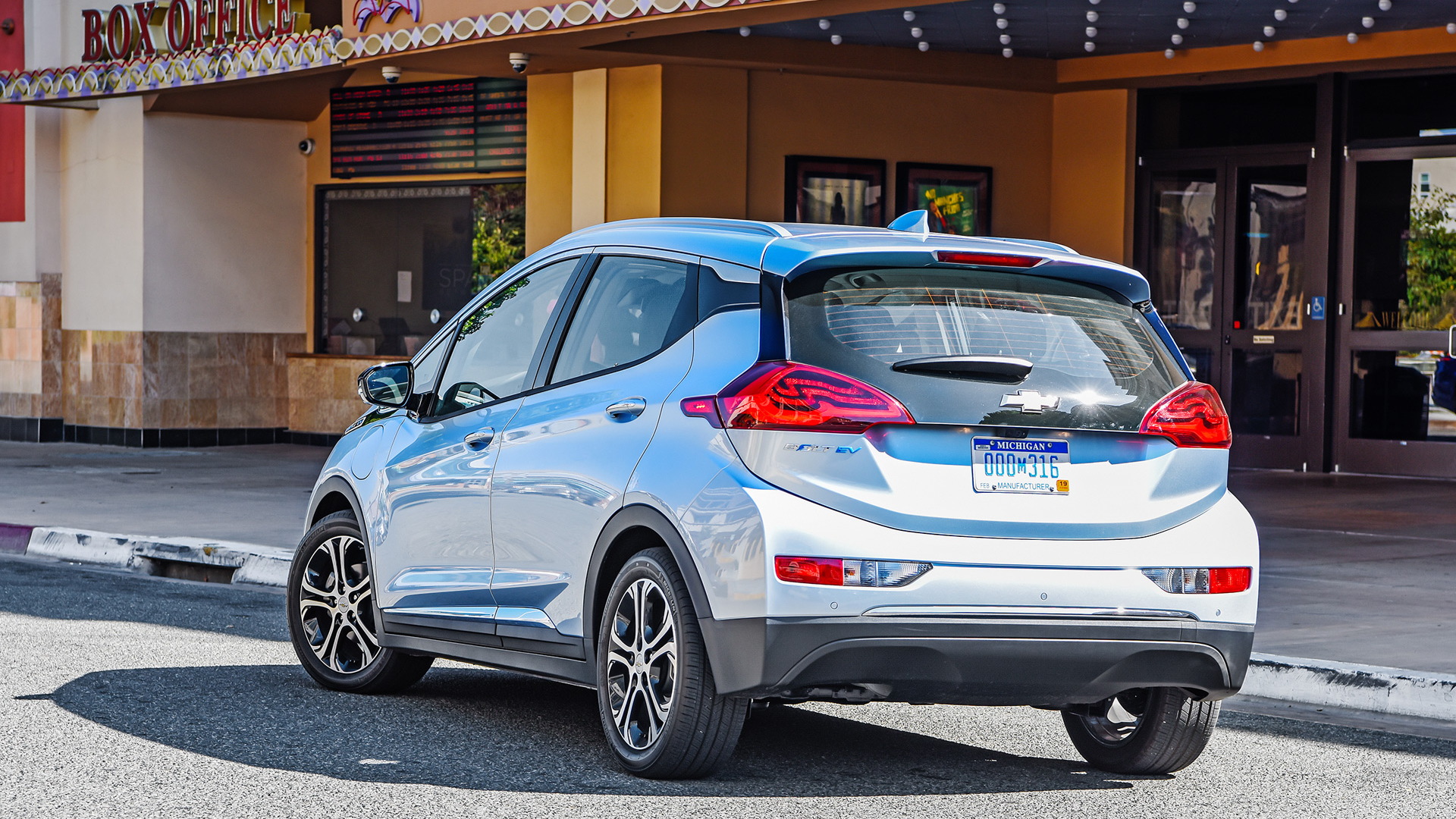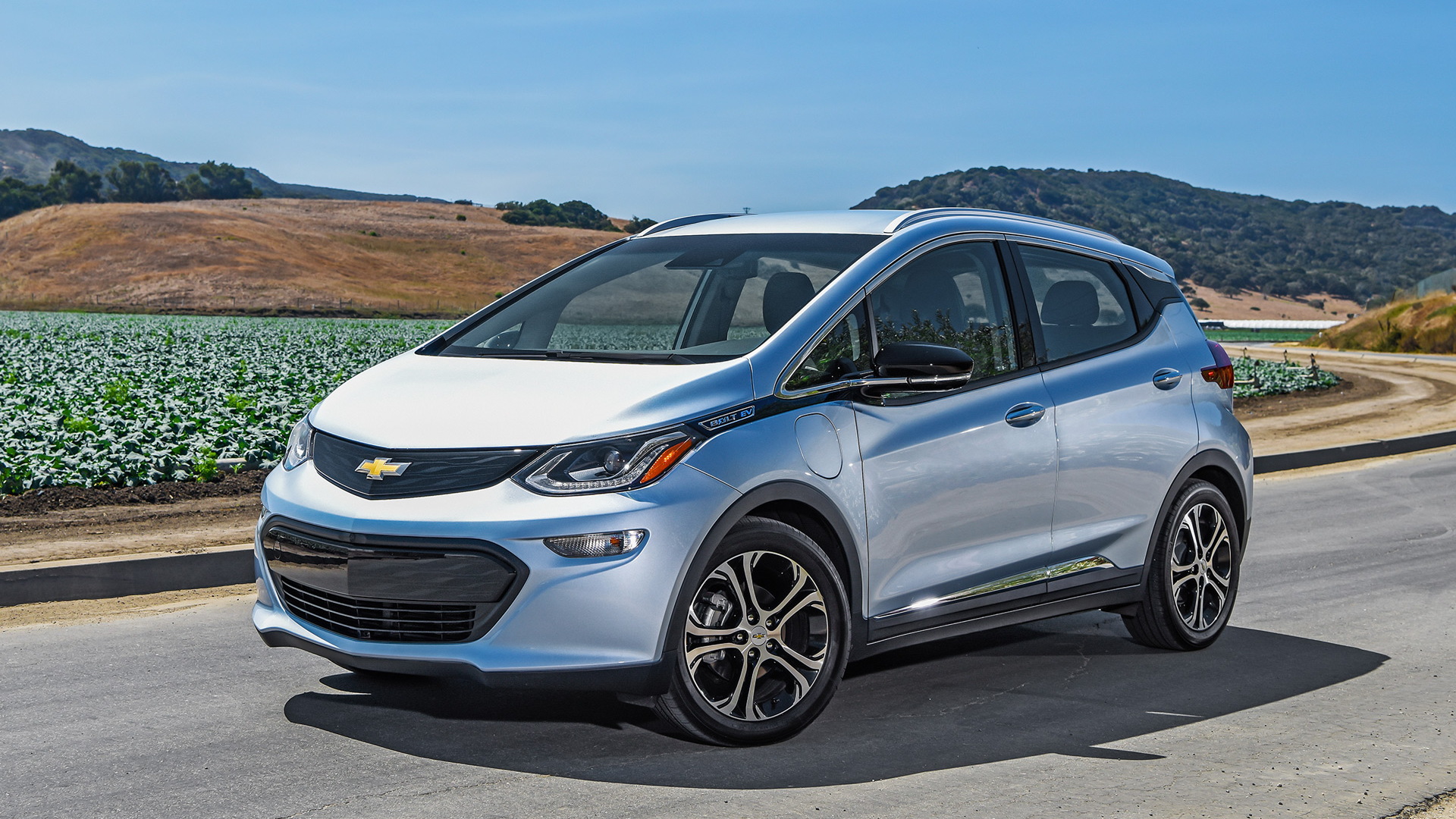GM has confirmed that it plans to replace all 68,667 Chevrolet Bolt EV electric cars that have potentially defective battery modules—including 50,925 in the U.S.—with new battery modules.
The announcement follows a second recall, announced in July, of the 2017-2019 Chevrolet Bolt EV due to a manufacturing defect that has caused some batteries to erupt in flames while charging.
GM hasn't yet finalized this with a revised recall filing or confirmed a timeline for what will be a massive repair effort for the company. However it issued the following statement: "As part of GM’s commitment to safety, experts from GM and LG have identified the simultaneous presence of two rare manufacturing defects in the same battery cell as the root cause of battery fires in certain Chevrolet Bolt EVs. As a result, GM will replace recalled vehicles’ lithium ion battery modules with new lithium ion battery modules. We will notify customers when replacement parts are ready."
The company emphasized Tuesday that the plan could still change. "If we determine a different remedy after additional investigation then we will adjust, but right now the plan is to replace all modules," said spokesperson Kevin Kelly to Green Car Reports.
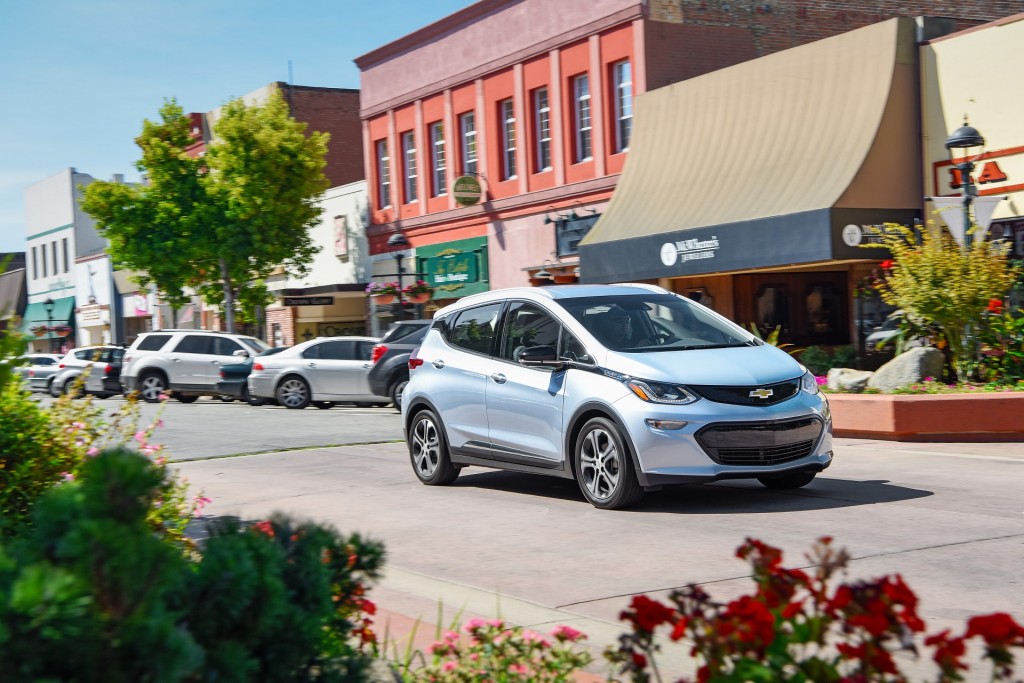
2017 Chevrolet Bolt EV, road test, California coastline, Sep 2016
[original recall story, 7/23/2021, resumes]
Owners who had their Bolt EV repaired under the previous recall will need to get it fixed again under this new effort. The first recall issued in November 2020 mostly relied on a software update to limit the Bolt's maximum state of charge to 90%.
The solution was temporary as GM investigated. In May, GM announced that it had developed a comprehensive remedy plan for the issue that would “utilize GM-developed diagnostic tools to identify potential battery anomalies and replace battery module assemblies as necessary.”
Two more Bolt EV fires prompted GM to issue another action less than two weeks ago urging drivers to park outside and not to leave their cars charging overnight. The two fires occurred on vehicles that already had the remedy performed, and bring the total number of reported Bolt EV fires in the U.S. to nine.
One of them occurred on July 1, in an incident reported by the Vermont State Police, stating that the vehicle was parked, plugged in, and charging at the time of the fire. According to local reports, that Bolt EV belonged to Vermont state representative Timothy Briglin, who has co-sponsored EV-related legislation.

2017 Chevrolet Bolt EV electric car at EVgo fast-charging station, Newport Centre, Jersey City, NJ
GM issued the following statement at that time: “General Motors has been notified of two recent Chevrolet Bolt EV fire incidents in vehicles that were remedied as part of the safety recall announced in November 2020. Out of an abundance of caution, we are asking owners of 2017-2019 Chevrolet Bolt EVs who were part of the recall population to park their vehicles outdoors immediately after charging and not leave their vehicles charging overnight while we investigate these incidents.”
Now, GM will replace the battery modules at no cost to owners. Until then, GM continues to advise owners of the affected vehicles to walk a fine line when it comes to charging and follow three steps.
Regardless of if the vehicle had the software update, affected Bolt EVs should limit charging to 90% using Hilltop Reserve mode (2017-2018 models) or Target Charge Level mode (2019 models). Owners can ask a dealer for help if they're uncomfortable changing the settings.
The second action is that owners should also not deplete their battery below 70 miles of remaining range and should charge the battery after each use.
Lastly, and "out of an abundance of caution," customers should leave the vehicle outside immediately after charging and not charge overnight.

2017 Chevrolet Bolt EV
All of the incidents involved a fire originating around the vehicles’ battery packs, when the cars were plugged in and nearly fully charged. GM noted that none of the vehicles affected have the “design level N2.1” cells that GM transitioned to in mid-2019. Those unaffected cells were made in Holland, Michigan, rather than Ochang, South Korea, for the earlier ones.
The situation has some strange optics as GM prepares for first deliveries of its GMC Hummer EV, which leads its Ultium EV push with unrelated, next-generation technology, later this year.
Hyundai faced a similar issue with some Kona Electric models, and opted in March for a quick but expensive fix: to replace the entire battery pack in up to 82,000 affected vehicles, including nearly 4,700 in the U.S.
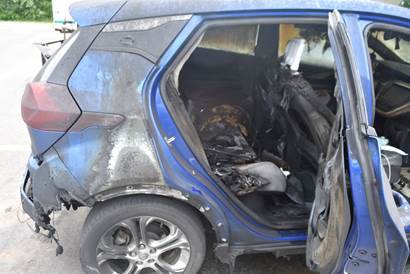
Chevrolet Bolt EV fire - Vermont State Police
Customers may contact 1-833-EVCHEVY or their dealership with questions, or check the Bolt EV recall page for more information.
--
This piece was significantly updated on August 17, 2021, building on recall information first published on July 23.
